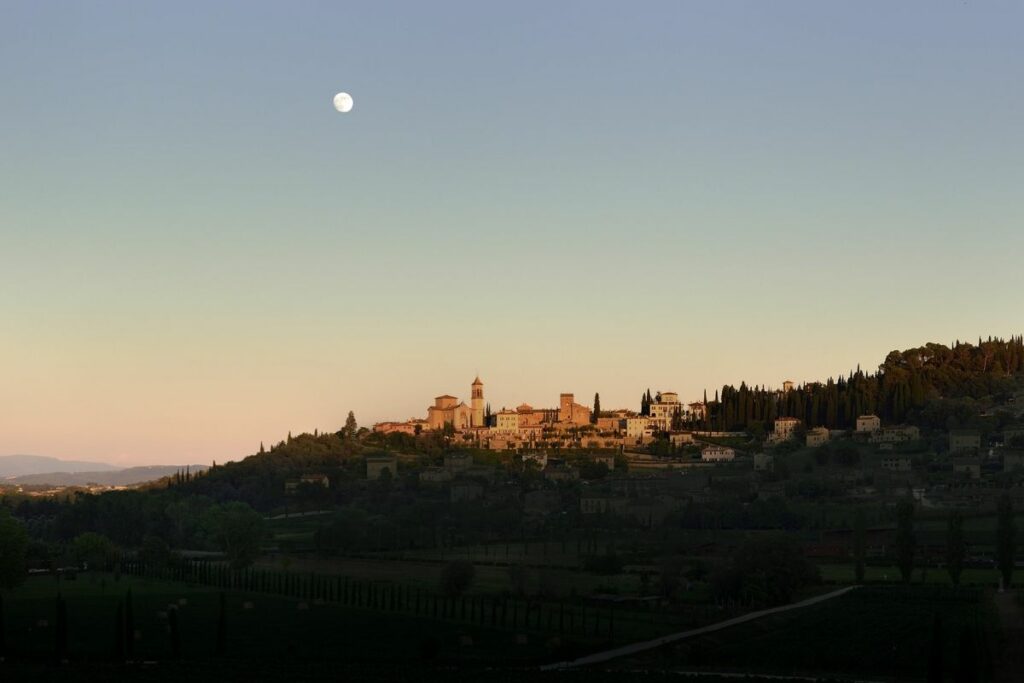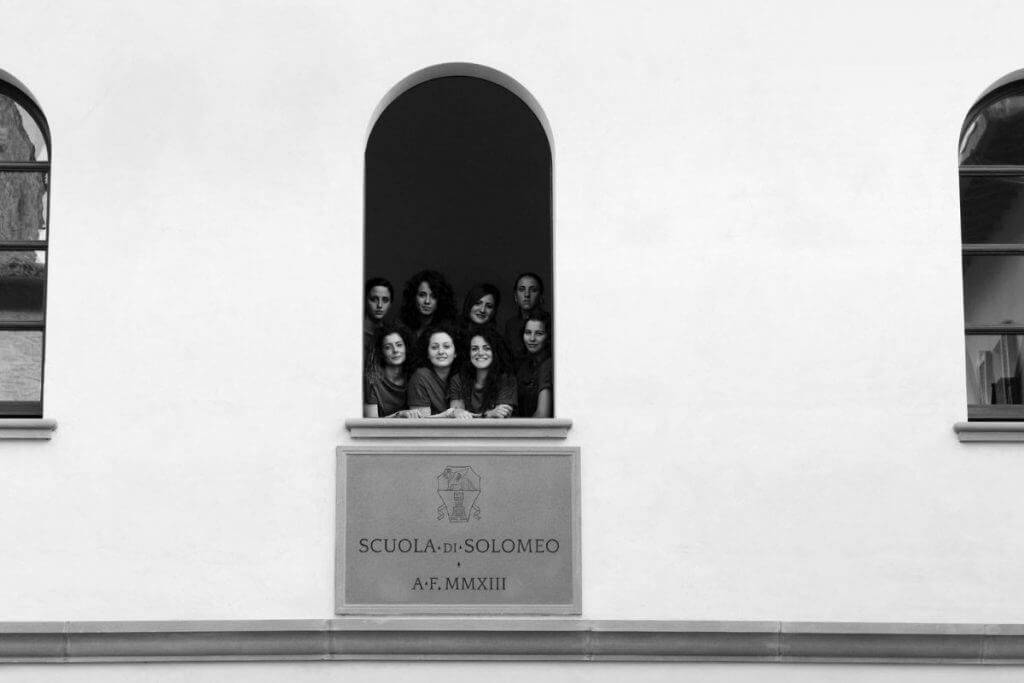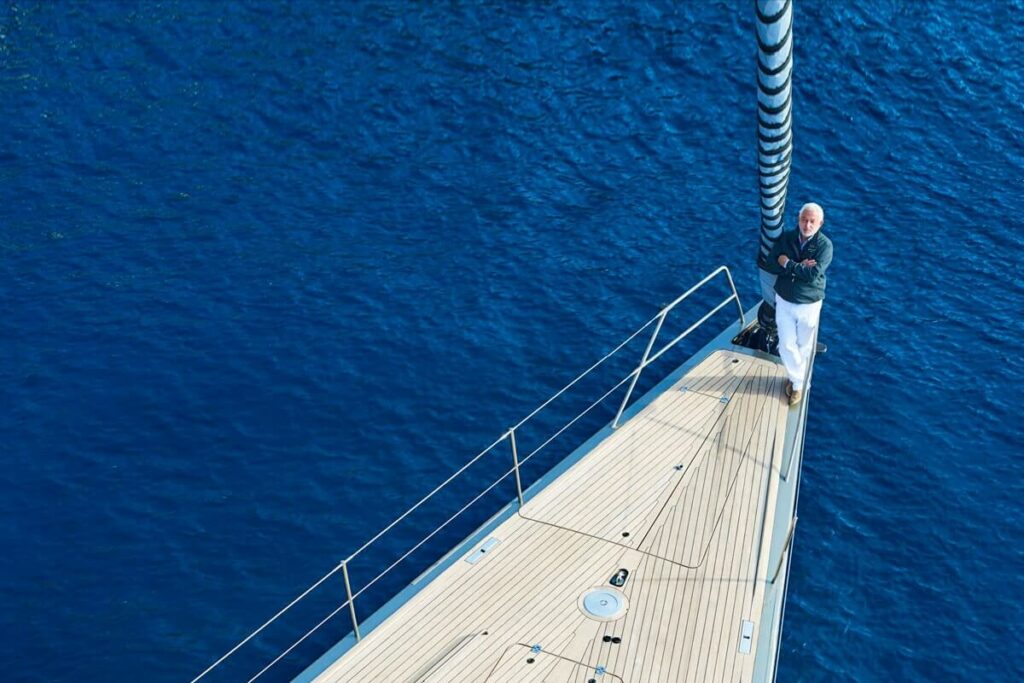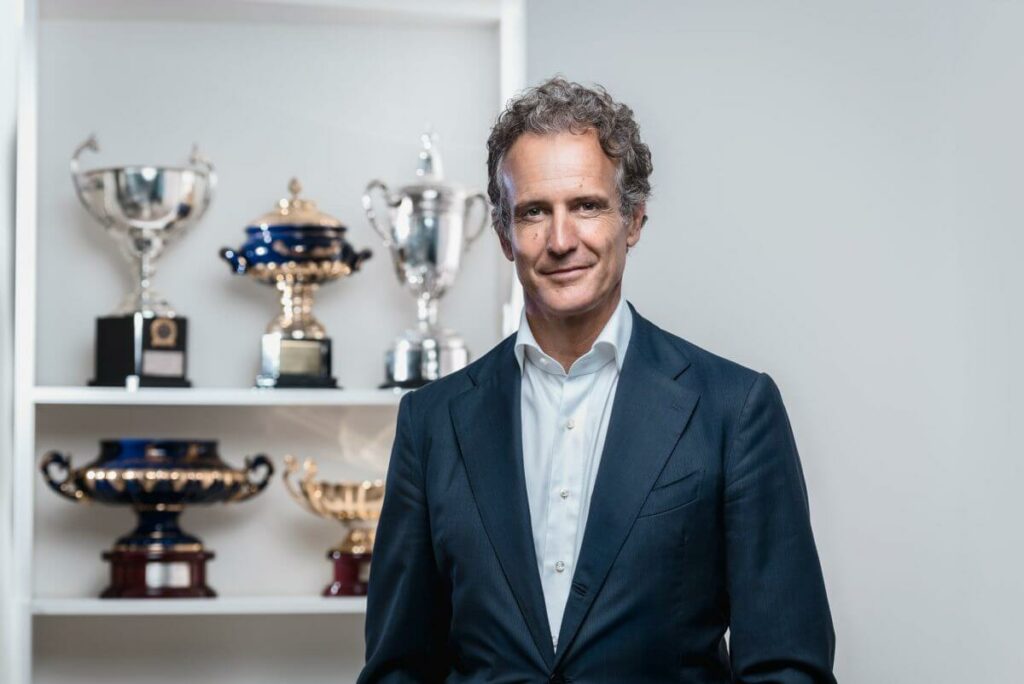The dream has always been to make human work more humane, imagining that it would elevate the dignity of man.
This phrase alone summarizes the thought, vision, and goal behind the dedication of every effort that made Brunello Cucinelli the first humanist entrepreneur and, only later, the king of cashmere.
Because while it is true that profit is only the result of the excellence of one's work and that this is the only goal to strive for, it is equally true that there are many paths to reach it.
But for Brunello Cucinelli, there have never been any doubts, never any crossroads.
The only path he has always taken to achieve excellence is that of human value:
"I have listened to the wise and moved words of Saint Francis, Saint Benedict, Kant, Marcus Aurelius, Socrates, Seneca, and I understood that economic value is meaningless without human value, from which the former cannot be separated."
Who is Brunello Cucinelli?
Brunello Cucinelli was born in 1953 in Castel Rigone, a small 15th-century village in the province of Perugia, into a farming family.
In 1978, he interrupts his studies because he has an idea that the market immediately "validates": coloring cashmere.
From day one, he dreamed of a company where work would become respectful of the "moral and economic dignity of man."
The knowledge of great men from the past nourishes his dreams and ideals, and with such strong roots, he can look to the future without fear: every action, every work of his, is designed to last for centuries.
The market, meanwhile, has become international, with its heart always in Italy, giving him the opportunity to implement his ideals.
In 1985, he purchased the 14th-century castle in the village of Solomeo and made it the headquarters of the company. He then adapted existing factories at the foot of the village – avoiding building new ones – when the demand for his products grew even greater.
Just as Humanism is rooted in the rediscovery of Latin and Greek classics, and it is through a love for classical studies that one can return to the concept of man as the author of his own history, so Brunello Cucinelli sees business as a way to widely spread the ideals of a new form of capitalism, a "Humanistic Capitalism," with the dignity of work at the center of every action.
All of this, surpassing 500 million euros in revenue.
Humanism 2.0: from roots to the future
Brunello Cucinelli's way of doing business reveals the outlines of a new world, where Italian knowledge and craftsmanship become protagonists once again. All of this could be interpreted as a harbinger of a new Renaissance: a golden century shaped by the great values of humanity.
"Radice" is the keyword that, in our opinion, encapsulates the vision of life and business of the philosopher entrepreneur.
And this keyword reflects the three core principles of his project:
- the headquarters;
- the company;
- the employees: the thoughtful souls.
The headquarters

The idea of restoring the castle, now the company headquarters, was a seed and – today – after 25 years of restoration, it is a healthy "tree."
From the trunk, equally fruitful branches have emerged: the construction of the "Forum of the Arts," the Aurelian Neohumanistic Library, the Gymnasium, the Amphitheater, and the Theater, which soon became places of culture and art.
The "School of Solomeo of Arts and Crafts" is also born, where the memory of the artisans' gestures (just like those of the classical authors) is preserved and passed down, turning into reality.
The company
Just like the roots of a plant, his business has grown following natural rhythms, in a sustainable way, achieving healthy profitability.
Roots, in this case, are linked not only to man but also to the territory.
The foundations of the business model remain firmly anchored to the distinctive elements that identify and position the brand in the highest luxury segment: the pursuit of the highest quality in sourcing raw materials, excellence in craftsmanship and manual skills, and an exclusive prêt-à-porter offering, a symbol of authentic Made in Italy, appreciated by a sophisticated consumer as an expression of a form of "contemporary lifestyle".
The business philosophy finds its roots in humanist culture and the ancient masters such as Socrates, Aristotle, Seneca, Alexander the Great, Marcus Aurelius, Saint Benedict, Saint Francis, Saint Augustine, Dante, and Palladio, aiming for a social and existential "well-being" that goes hand in hand with the growth of the authentic value of the business.
The employees: the thoughtful souls.

Here is the main root, the heart of it all.
Brunello Cucinelli defines his employees as “thoughtful souls,” revealing in just two words the values that characterize the company’s history and strengthen, step by step, the brand's identity: the humanistic approach to development, where the idea of work is an expression of man in his entirety, philosophical inquiry, and attention to the craftsmanship.
In the humanistic business of Solomeo, people work towards a common goal, characterized by the presence of immaterial values, a living part of the entire company.
The business follows its own ethics: both internally – in interpersonal relationships – and externally, it always places human values first.
This way, one feels responsible for their work without the need for excessive rules and without penalizing their individuality:
this creates a united group where everyone has a role to play for the good of all.
His message
It takes mind and soul: every beautiful idea that starts in the mind and passes through the soul will be a beautiful idea.
For this reason, parents, we parents, have made two great mistakes, according to Brunello Cucinelli.
The first is having instilled the obligation to be afraid.
But what should you young people be afraid of? Replace fear with hope, and life will change for us. A life without hope has no logic. Our fathers fought in the war, they were killed for the great ideals, for the great values of life. Do not be afraid.
The second concerns the relationship between study and work. We have grown up and are raising young people with the threat: "If you don't study, you’ll have to work." However, by doing so, we place all the blame for not studying on work, stripping it of its moral and economic dignity.
There is a great difference between being educated and being trained. An educated human being will always be a special human being.
Do not listen to us parents, who are boring, we would like you to do what we like... Alexander the Great, at 17, would always look at the sea. And when his mother asked him, "But why for hours?" he replied that he wanted to know the boundaries of the world.
Do you understand? Follow your dream.
Editorial credit for images: www.brunellocucinelli.com


